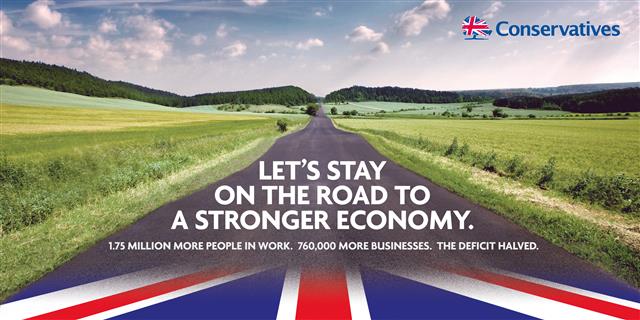As I described in my post from October last year:
[…] this clunky, unnecessary, counter-productive political device […] has been imported from America and shoehorned into our vastly different political system with practically no alterations.
The televised leaders' debates serve to make our electoral system seem more presidential, and in doing so, diminish the link between local MPs and their constituents. They oversimplify politics in a way which doesn't serve the country at all. It's time to admit that they were a mistake in 2010, and we'll be better off without them in 2015.However, when I wrote in October, the debates were in the spotlight over the issue of whether UKIP should be included. By now, however, we have moved way past that – with UKIP's participation in the debates now seemingly a given, the latest wrangling is about whether the Green Party should also be involved, along with the nationalist parties of Plaid Cymru and the SNP.
A seven-way debate, of course, is not impossible. But whether it's possible should not be the question we are asking here – rather, we should ask 'is it desirable?' There are several reasons why I believe it is not.
Firstly, the simple fact of the inclusion of parties who don't put up candidates across the whole of the UK – and who, therefore, necessarily only speak to a portion of the electorate – is problematic. As the broadcasters reach out to the SNP and Plaid Cymru, Northern Irish parties such as the DUP are now wondering aloud why they are not also being invited to join the debates; if the DUP (who, let's not forget, currently have more seats in the House Of Commons than either Plaid Cymru or the SNP) were invited, we would end up with a debate between eight party leaders. These debates are supposed to help voters decide how to cast their votes – how does presenting them with options at least 25% of which they couldn't possibly vote for even if they wanted to do that?
Secondly, even leaving that issue aside, I don't see how the televised debates are meant to help an undecided voter make up his or her mind. In 2010, the analysis of each leader's performance in the debates seemed to focus much more on 'body language', what colour tie each leader was wearing – and, afterwards, who had 'won' – than on the actual content of each argument. The whole process struck me as horribly superficial. With seven, or even eight, people involved instead of three, that rigmarole will be intensified further, with pundits and public discussing who stood where, who wore what, and who 'won' instead of – y'know – actual politics. That's not the way to build a thriving democratic process.
My final objection is closely related to the last one, because even before the debates have begun people are not talking about politics and policies – they are talking about the debates. They are talking about who should, or should not, be invited to the debates; what the format of the debates should be; when they should take place; whether broadcasters should 'empty chair' any leader who declines to take part… Are these the issues on which we should be focussing, with only a hundred days left before we have to decide who will be running our country for the next five years?
The more we allow the ins-and-outs of the debates to dominate the discourse leading up the election, the more we allow the superficiality of politics to take over, and the less we as voters can connect with the issues which really matter. That is not democracy, and that is why we need to consign the televised leaders' debates to the history books.
